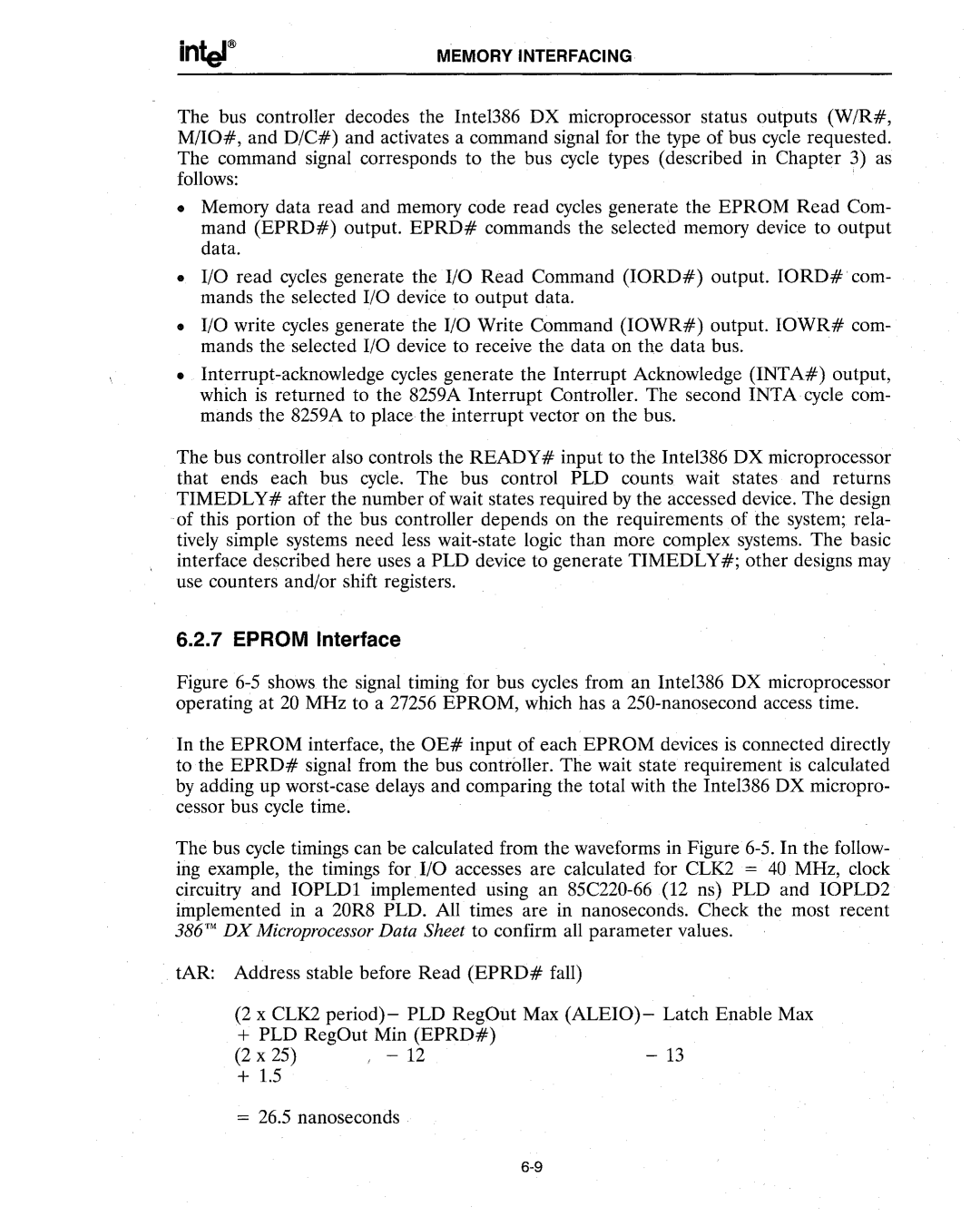
MEMORY INTERFACING
The bus controller decodes the Inte1386 DX microprocessor status outputs (W/R#, M/IO#, and D/C#) and activates a command signal for the type of bus cycle requested. The command signal corresponds to the bus cycle types (described in Chapter 3) as follows:
•Memory data read and memory code read cycles generate the EPROM Read Com- mand (EPRD#) output. EPRD# commands the selected memory device to output data.
•I/O read cycles generate the I/O Read Command (IORD#) output. IORD# com- mands the selected I/O device to output data.
•I/O write cycles generate the I/O Write Command (IOWR#) output. IOWR# com- mands the selected I/O device to receive the data on the data bus.
•
The bus controller also controls the READY# input to the Intel386 DX microprocessor that ends each bus cycle. The bus control PLD counts wait states and returns TIMEDLY# after the number of wait states required by the accessed device. The design of this portion of the bus controller depends on the requirements of the system; rela- tively simple systems need less
6.2.7 EPROM Interface
Figure 6-5 shows the signal timing for bus cycles from an Intel386 DX microprocessor operating at 20 MHz to a 27256 EPROM, which has a 250-nanosecond access time.
In the EPROM interface, the OE# input of each EPROM devices is connected directly to the EPRD# signal from the bus controller. The wait state requirement is calculated by adding up worst-case delays and comparing the total with the Inte1386 DX micropro- cessor bus cycle time.
The bus cycle timings can be calculated from the waveforms in Figure 6-5. In the follow- ing example, the timings for I/O accesses are calculated for CLK2 = 40 MHz, clock circuitry and IOPLD1 implemented using an 85C220-66 (12 ns) PLD and IOPLD2 implemented in a 20R8 PLD. All times are in nanoseconds. Check the most recent 386'" DX Microprocessor Data Sheet to confirm all parameter values.
tAR: Address stable before Read (EPRD# fall)
(2 x CLK2 period)- PLD RegOut Max (ALEIO)- Latch Enable Max
+PLD RegOut Min (EPRD#)
(2 x 25) | - 12 | - 13 |
+1.5
